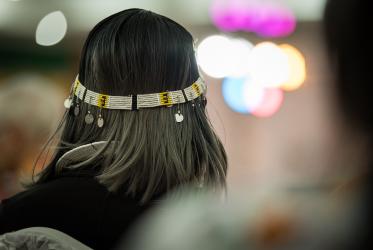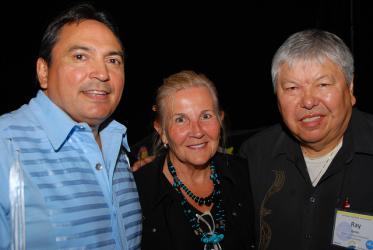Displaying 1 - 20 of 34
Prayer Service - "United Nations Permanent Forum on Indigenous Issues"
15 April 2024
Church Centre (first floor), United Nations, New York (777 United Nations Plaza)
Indigenous women struggle for identity in Asia and beyond
05 September 2022
WCC honors world’s indigenous communities
07 August 2020
Standing Rock decision ”Gospel news” for indigenous communities
08 December 2016
Religion and Violence Prevention in the Americas
28 February - 01 March 2016
Washington D.C., United States - Attendance by invitation only.
Consultation considers right to food in context of climate change
15 December 2015
Land rights focus of panel discussion
17 November 2015
Reclaiming our humanity
23 June 2015















